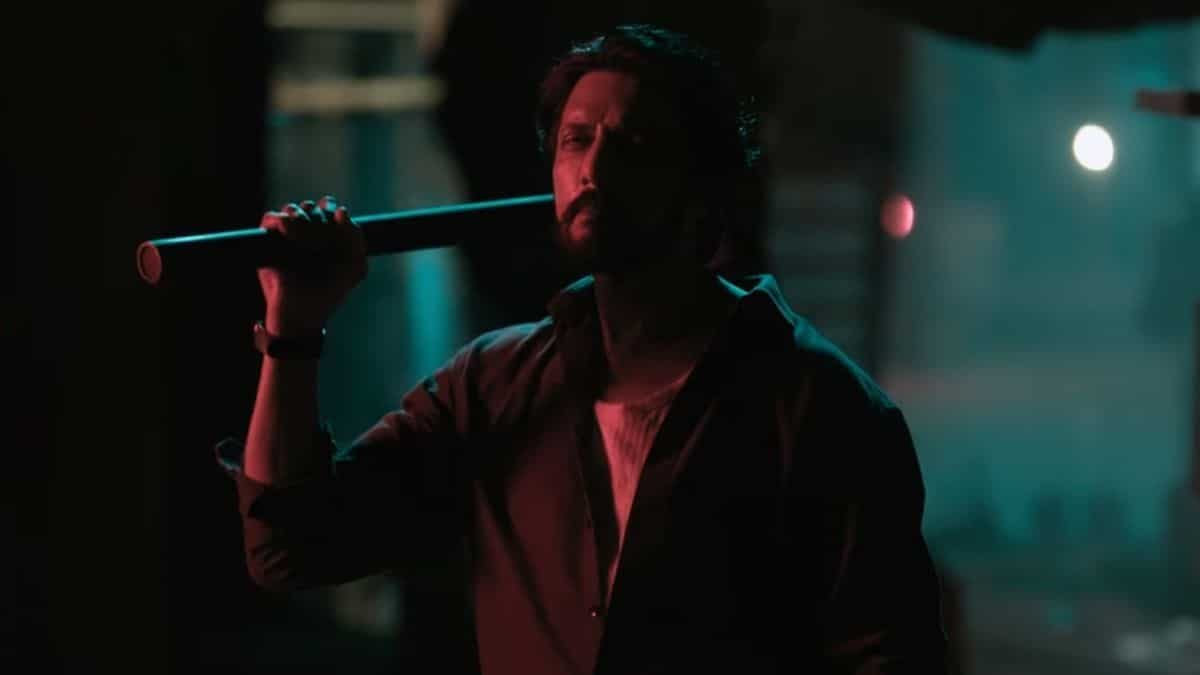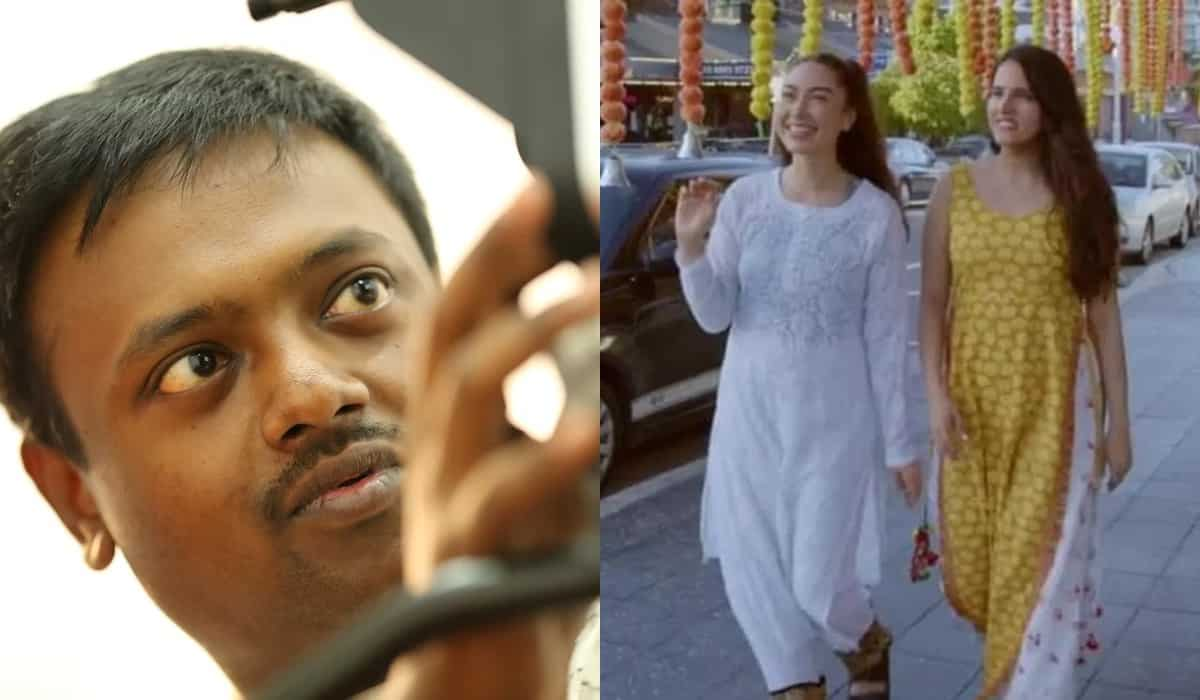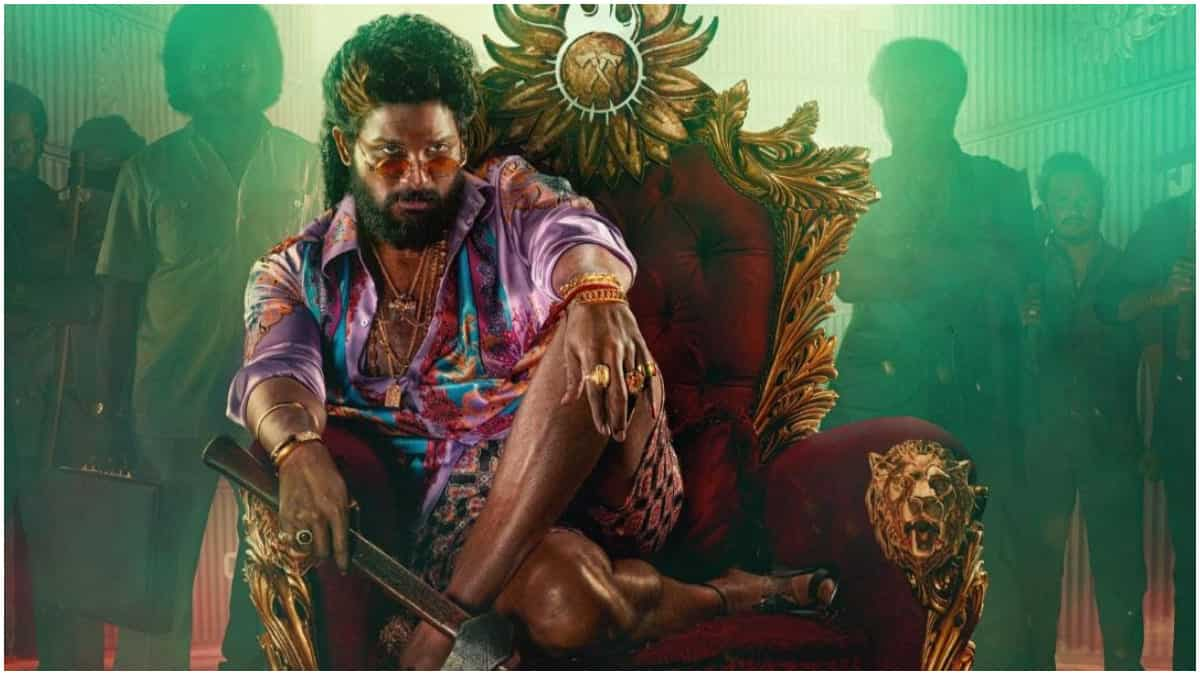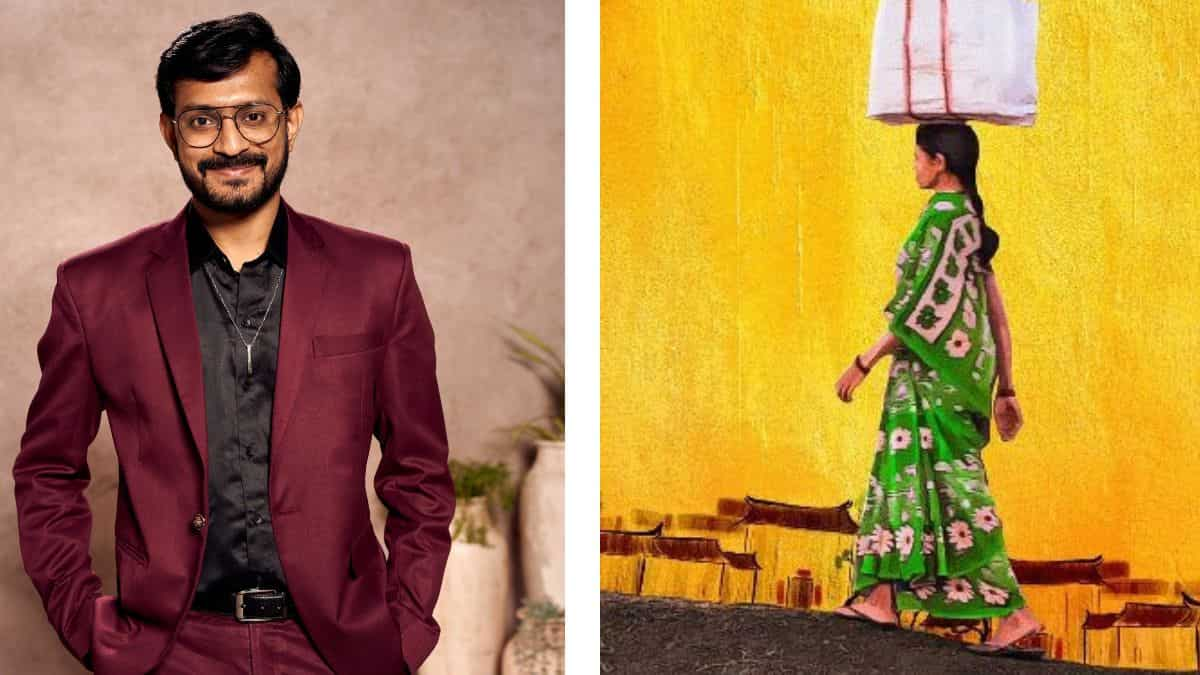
Jaishankar Aryar: Shivamma Is About My People & I Wanted To Tell Their Stories
5 months ago | 47 Views
A DAY BEFORE Shivamma Yarehanchinala's release, director Jaishankar Aryar was burning the midnight oil, working. The day had gone by in promotional interviews and the nights were reserved for his IT job. Jaishankar is among the many engineers-turned-filmmakers — only he’s chosen to hold on to both. “This time, in both places, we have a deadline. And so, it’s been an interesting week,” says Jaishankar, whose Shivamma, produced by Rishab Shetty, finally hit the big screen on June 14 after a successful festival circuit, where it reaped awards, including co-winner of Busan International Film Festival’s New Currents competition.
The film revolves around Shivamma, a cook in a government school who hopes for a better life. She avidly seeks to take up membership in a multi-level marketing firm that sells health drinks. Along the way, she faces various hurdles, all of which she handles with her resilience and ability to brush off negativity and move on.
Before Shivamma, Jaishankar made Lachavva, a delightful tale of a woman from North Karnataka who gets lost in the big city of Bengaluru. The short was part of Katha Sangama, also backed by Rishab Shetty currently streaming on Amazon Prime Video.
Jaishankar is also a filmmaker to look forward to because he’s among the couple of filmmakers who train the spotlight on North Karnataka and put people from there in the centre of the screen, not in the background.
He talks about why he likes working on stories based in his native North Karnataka, shooting with non-actors and working in a niche space.
There are films that feature characters from North Karnataka, but we don’t experience their life the way we do in your films…
Ah, possibly because they are my people and I am fascinated by their lives. My father was in the police department and we kept moving. I remember growing up in Channapatna, Doddaballapur and Devanahalli, but summer, Dussehra and Christmas holidays were always spent in Yarehanchina, my father’s village. I grew up in many places, but this felt like home. And, I wanted to tell their stories.
I realised that they never played the leads. The spotlight was never on them; they were almost invisibilised. I was connected to them, because of language. It felt like mine. And, I’ve never really seen an authentic version of this dialect on screen. Accents vary from district to district even in North Karnataka. From Koppala to Hospet, it changes.
This was also the reason why I decided to find a fresh cast and not use the people of Lachavva again. Paravva acts beautifully, but she’s from the Dharwad belt. Her dialect is different. I wanted to showcase Koppala Kannada.
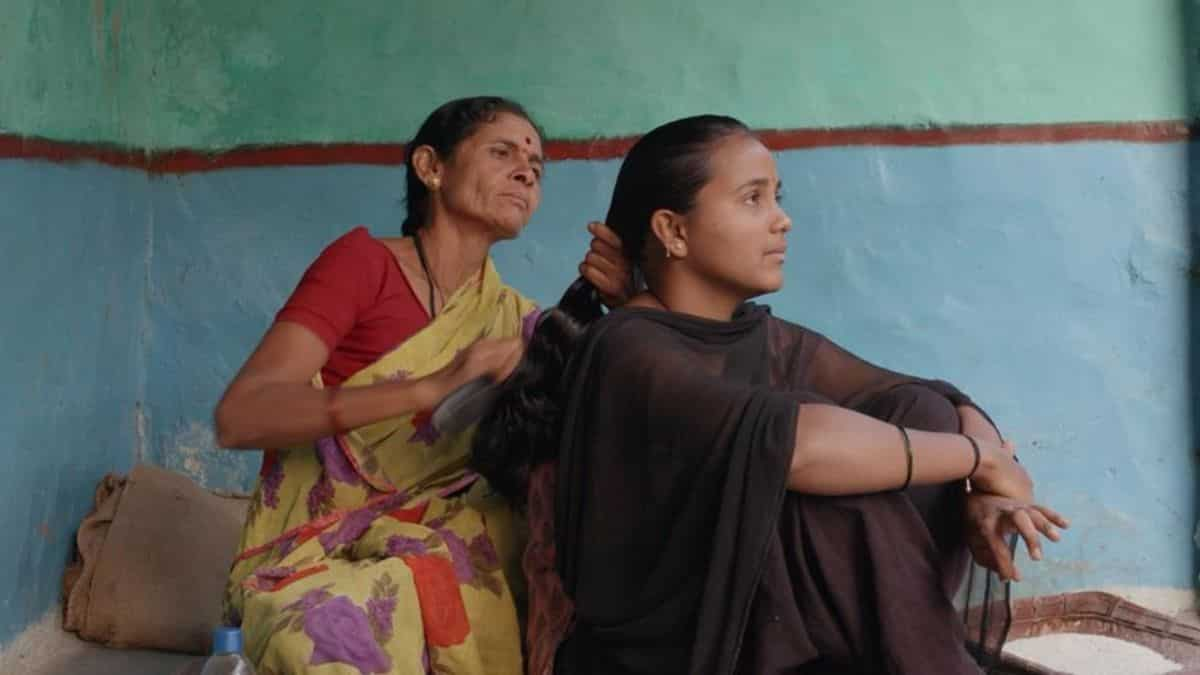
What was your childhood like?
Well, we kept moving, meeting new people. I grew up watching films on Doordarshan. When I was in Class 8, I think my movie craze began. I was an introvert and started going out all alone for movies. We were in Channapatna then, and there was this theatre called Shivanand within walking distance of home. I consumed all mainstream Kannada movies released then. Occasionally, there would be an English movie, say King Kong.
And then eight years ago, when we moved to Bengaluru, there was a theatre near the police quarters and I would watch one movie a week.
My dream to become a filmmaker was probably rooted in these experiences, but I spoke aloud about my dream after doing my engineering in Bengaluru.
What is it about engineering colleges that they churn out so many filmmakers?
I think the generation that joined engineering college in the 2000s, the 90s-born kids, many of us were forced to do engineering. The software boom was still on, and our parents sent us to study computer science. Many of us are forced engineers. It was 'the' profession to take up, especially when you came from small-town India.
In Bengaluru, I got exposed to filmmaking. Friends would share their movie collection, and I realised there was a cinema other than Kannada and that it was very different. I think this is where my dream to become a filmmaker was shaped. I don’t think I would have had the courage to do that had I stayed in another city or town.
I attended a workshop on how anyone can make a film. I learnt the basics and made a small two-three-minute video with two friends. I ended up learning editing, handling a camera and lighting.
The cast of both Lachavva as well as Shivamma are primarily non-actors. And, yet they don’t appear too ill at ease in front of the camera. How did you manage that?
I began my search with a rather specific list of characteristics. For instance, for Shivamma, I was looking for someone who is street smart, outspoken, resilient, slightly mean… I wanted someone who could look as if she possessed all of these. I scoured the entire village, observing people. I went to each of the almost 700 houses there, and introduced myself as my father’s son. None of them fit the bill.
And then, one day, I found Sharanamma Chetti, who plays Shivamma, in my house. I was convinced in three minutes that she would fit the role. All I wanted was an actor who could showcase monotony and the desire to come out of it.
I know some people might judge Shivamma’s character, but I think the grey shade was because of the nature of business. If this character had been working in any other field, she would have got support.
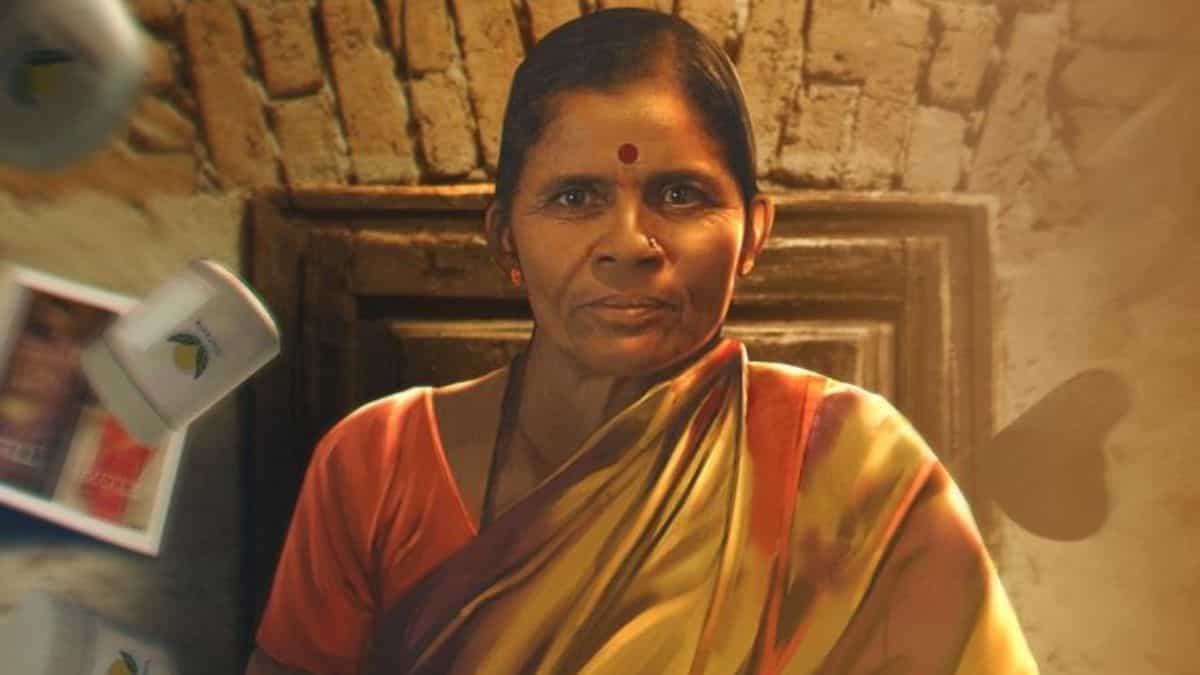
Where did the idea of a person like Shivamma strike you?
I think the source of inspiration for the film is someone who travelled from rural Bangalore to the city to sell directly. When I visited his village, I realised many companies were in that space, working on a smaller scale. I then saw a man in formals pitching something. I realised eventually that he was out there to sell. He was so confident about the entire exercise.
I observed the body language of the salespeople. I found some very interesting, funny characters.
During the shoot, we had some issues with people who did not like our process. But they also forget anger very easily. The conflicts were resolved, and my screenplay kept getting richer.
How was the film festival experience and what was Rishab’s role in helping your film travel?
I had only heard of prestigious film festivals such as Berlin, Venice and Cannes, but never imagined I would be attending one.
Shivamma was selected as part of the Work-in-Progress Lab at India’s Film Bazaar, and 15 minutes of the film were shown in the ‘Goes to Cannes’ section at the Cannes Film Festival in 2022. When I was in Cannes, I grew very emotional. I wanted to tell my village’s name loudly and tell the villagers that they’ve also travelled with me. I think the magnitude of Shivamma hit me there.
In Busan, South Korea, there was a huge applause and a gentleman walked up to me and said he was from Koppala and had travelled far to watch the film. Some 20 people took my autograph, and I wondered what I did to deserve this love.
The festival run was funded by Rishab sir. He backed me at every step and that’s why we visited so many festivals. Korea is also charmed by Indian cinema, and Kannada in particular. So many niche films like Pinki Elli (world premiere in the Window on Asian Cinema section), Hadinelentu (premiere) and Pedro (premiered in the New Currents section) were much loved there.
Yes, we worked within budget restrictions, but it was satisfying.
Some did ask me why I chose to narrate this as a feature and not a documentary. But, I felt it would work best as a feature. And everyone was game to work on our limited budget.
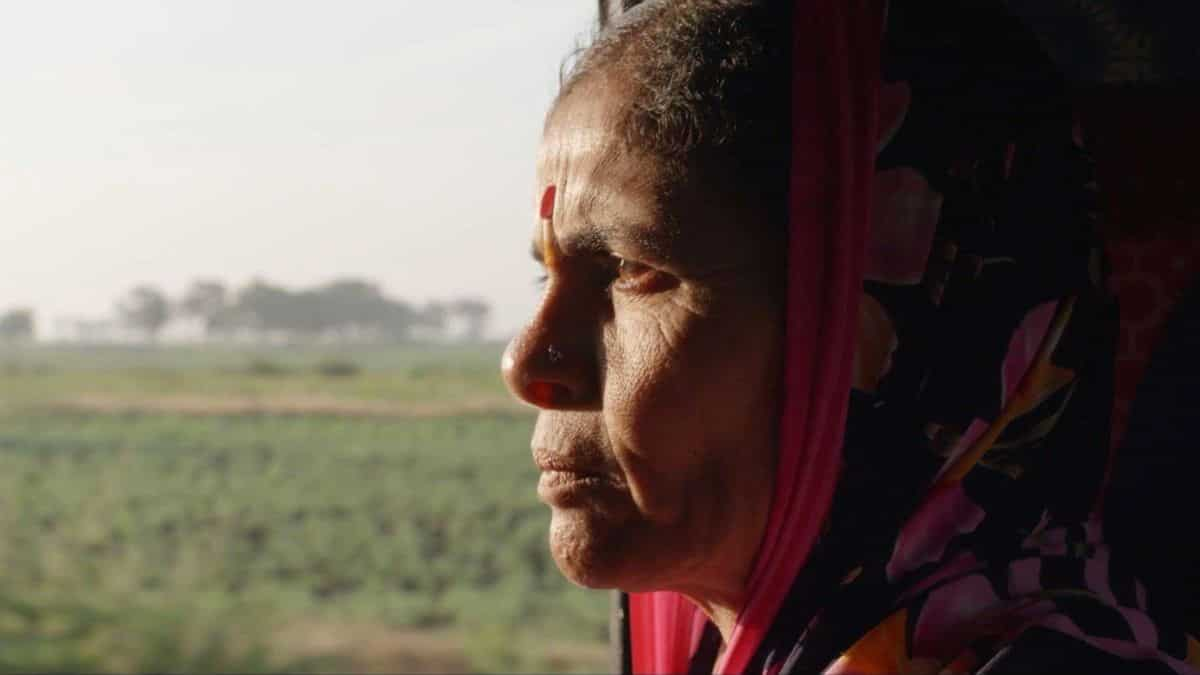
How’s Shivamma dealing with the fame?
She’s a farmer back home, raising groundnuts and sunflowers. Even now she does that. She enjoys the appreciation and fame, but I’ve told her to keep doing her thing, because this one film is not going to change her life. I’ve seen many people get heartbroken at being forgotten after sudden popularity.
What next?
Mentally, I am still with Shivamma. I will move on possibly by the end of the month. The film took a lot out of me. And, I needed this time. In the gap between this movie being made and released, I worked on a short film about a couple meeting three months after a break-up. That should release online soon.
But now, I want to make a mainstream film for the theatrical audience. I’m working on two ideas, and will finalise one shortly.
Read Also: indian 2 box office collection day 4: kamal haasan film sees massive drop on first monday
#

